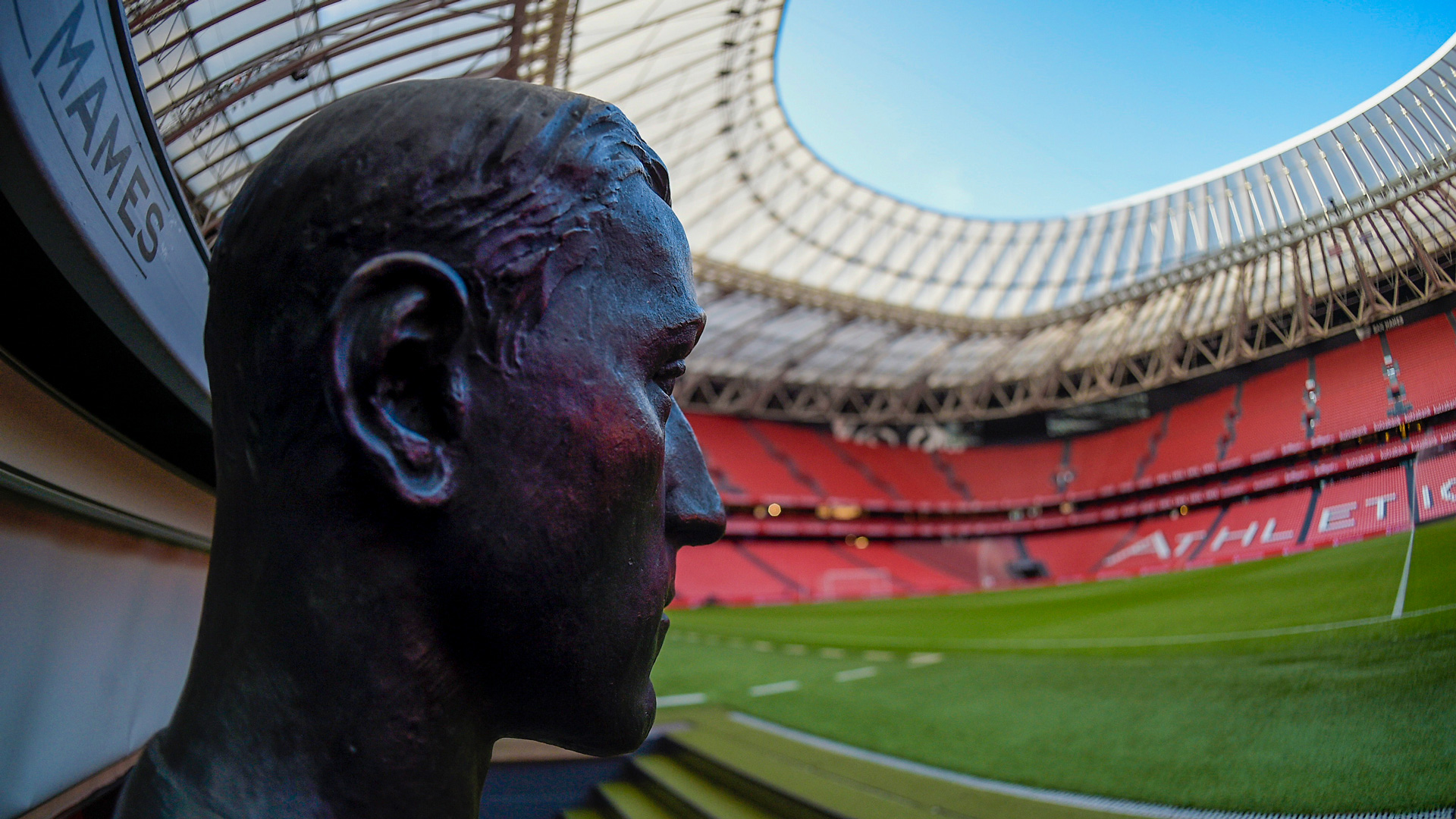
Pichichi: 100 years since the death of Athletic’s first legend
Pichichi: 100 years since the death of Athletic’s first legend
March 1st marks the centenary of the passing of Pichichi, one of Athletic’s first superstars
On March 1, 1922, Rafael ‘Pichichi’ Moreno passed away at just 29 years old. To this day the forward remains one of the greatest icons in Athletic Club’s history.
Current generations may have heard of the legendary striker thanks to the fact a trophy named in his honour is awarded to LaLiga’s top goalscorer every season, or perhaps they might be aware of the tradition which sees visiting teams lay a bouquet of flowers next to Pichichi’s bust when they play at San Mamés for the first time.
He was one of the football’s, and Athletic’s, first great superstars and at the Club we pay tribute to him every day.
Born in Bilbao’s Casco Viejo (Old Town) on May 23, 1892, Pichichi was 20 years old when he made his official Athletic debut, against Real Madrid, on March 17, 1913.
It took two minutes for him to score and lay down a marker. Nine minutes later, he scored a second. A star was born.
He led a dominant Athletic in those years in which LaLiga did not yet exist. At that time the Copa and the Regional Championships were the only official tournaments and friendlies had much more value than they do today.
He was also the first player to score at San Mamés, doing so on the day of the stadium’s inauguration, in a 1-1 draw with Real Racing de Irun on August 21, 1913. Pichichi played 89 official matches, scoring 83 goals, although the figure rises to over 200 when friendlies are also taken into account.
He won five Regional Championship titles (1914, 1915, 1916, 1920 and 1921) and four Copas (1914, 1915, 1916 and 1921).
His legend was further enhanced at the 1920 Olympic Games in Antwerp. The Spanish national team were silver medallists and Pichichi was the only player to take part in all five games.
A year later, he decided to hang up his boots and became a referee (he even refereed a match at San Mamés). Unfortunately, a few months later he passed away from typhoid fever, which he is believed to have contracted from eating bad oysters.
Today, on the centenary of his passing, we remember everything he did for Athletic and everything he continues to do.
Click the links below for further reading on the life and career of Pichichi and his impact at Athletic Club:
The Language of Athletic Club (Pt.8): Pichichi
Rafael Moreno Aranzadi: The Athletic player who became Pichichi
